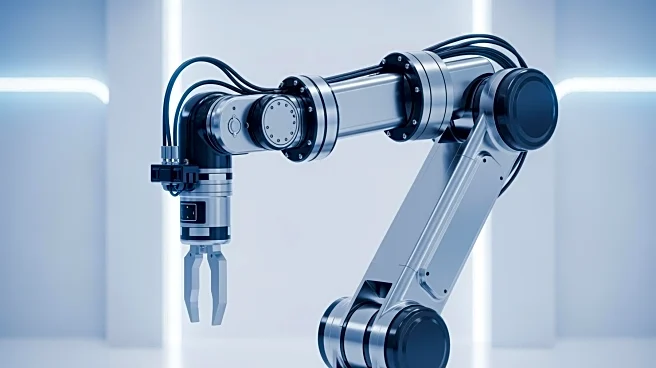What's Happening?
Hullbot, a company specializing in autonomous robotics for hull grooming, has won the Australian Good Design Award of the Year. This accolade places Hullbot ahead of major innovators such as Tesla and
Hyundai. The company's technology addresses biofouling, a significant challenge in the maritime industry, by providing an autonomous cleaning solution. Hullbot's technology is operational in international ports, aiding ship operators in meeting stringent emissions and biofouling regulations. The company also received a Gold Award and Best in Class Award for Commercial & Industrial Product Design, highlighting its commitment to functionality, efficiency, and environmental impact.
Why It's Important?
Hullbot's recognition underscores the growing importance of sustainable technology in the maritime industry. By addressing biofouling, Hullbot helps reduce emissions and operational costs, aligning with global decarbonization goals. This innovation not only enhances shipping efficiency but also contributes to ocean health, demonstrating that economic performance and sustainability can coexist. Hullbot's success may inspire other companies to pursue similar technological advancements, potentially leading to broader industry shifts towards environmentally friendly practices.
What's Next?
Hullbot plans to expand its impact by further integrating its technology into the shipping industry. As regulations around emissions and biofouling tighten, Hullbot's solutions could become increasingly vital for compliance. The company aims to continue blending ethics, technology, and creativity, setting a precedent for sustainable practices in maritime operations. Stakeholders in the shipping industry may look to Hullbot as a model for innovation, potentially leading to increased investment in similar technologies.
Beyond the Headlines
Hullbot's achievements highlight the ethical dimensions of technological innovation in the maritime sector. By prioritizing environmental impact alongside economic performance, Hullbot sets a standard for responsible business practices. This approach may influence cultural shifts within the industry, encouraging companies to adopt more sustainable and ethical strategies. The long-term implications could include a more environmentally conscious maritime industry, with Hullbot leading the charge in this transformation.









